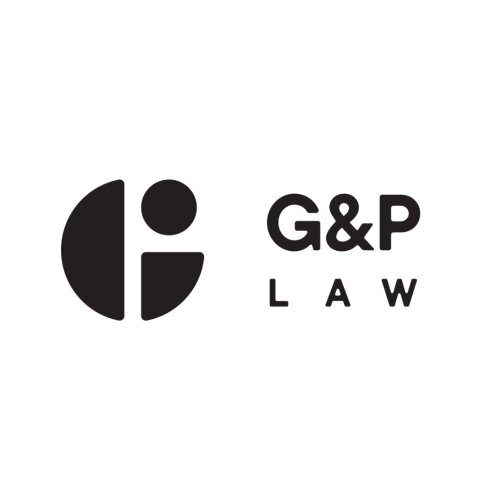Best Project Finance Lawyers in Bulgaria
Share your needs with us, get contacted by law firms.
Free. Takes 2 min.
Or refine your search by selecting a city:
List of the best lawyers in Bulgaria
About Project Finance Law in Bulgaria
Project finance is a specialized legal and financial approach used to fund large-scale infrastructure and industrial projects in Bulgaria, such as energy plants, highways, water treatment facilities, and real estate developments. In a typical project finance transaction, the project itself provides the cash flow and assets to secure the necessary funding, rather than relying on the general creditworthiness of project sponsors. Bulgarian project finance draws heavily from international standards but is shaped by local regulatory frameworks, banking practices, and EU directives. Successful implementation of a project finance arrangement in Bulgaria involves careful structuring to balance the interests of sponsors, lenders, contractors, and public authorities.
Why You May Need a Lawyer
Project finance transactions in Bulgaria are often complex and involve multiple stakeholders, cross-border considerations, and regulatory requirements. You may need a lawyer if you are:
- A developer or sponsor seeking legal assessment of a project’s structure and feasibility
- A lender or investor wanting to minimize risks and ensure proper securities over project assets and revenues
- A public authority or municipality involved in a public-private partnership or concession arrangement
- A contractor, supplier, or service provider entering into key project agreements
- Experiencing disputes in project implementation or contract performance
- Navigating regulatory approvals, licenses, or compliance with Bulgarian and EU laws
- Dealing with restructuring, insolvency, or changes in project ownership
Given the multifaceted nature of project finance, legal advice is crucial in drafting and reviewing contracts, ensuring compliance, securing financing, resolving disputes, and ultimately safeguarding the interests of all parties involved.
Local Laws Overview
Bulgaria’s legal environment for project finance is shaped by both national and European Union legislation. Key legal aspects include:
- Concessions and Public-Private Partnerships: Concession projects are regulated by the Concessions Act, while public-private partnerships (PPPs) are governed by the Public-Private Partnership Act and related regulations. These laws set out the procedures for project award, rights and obligations, and risk allocation.
- Banking and Collateral: Lending for project finance is subject to the Credit Institutions Act and related financial services regulations. Typical security packages may include mortgages, pledges of assets or shares, and assignments of project receivables, all registered according to Bulgarian law.
- Permits and Licensing: Depending on the sector, project development may require various permits, including construction, environmental, and operational licenses. Compliance with sector-specific regulators, such as the Energy and Water Regulatory Commission, is often essential.
- Environmental and Social Regulations: Large projects must undergo environmental impact assessments (EIA) as required by the Environmental Protection Act and must adhere to labor and social standards.
- EU and International Regulations: Being an EU member, Bulgaria adheres to EU directives relevant to procurement, competition, state aid, and cross-border investments.
Proper understanding and navigation of these legal frameworks are vital to structuring successful project finance deals in Bulgaria.
Frequently Asked Questions
What types of projects are commonly financed through project finance in Bulgaria?
Typical projects include renewable energy plants, highways, rail infrastructure, water and waste treatment plants, large real estate developments, and industrial facilities.
Who are the main stakeholders in a typical project finance structure?
Key participants include project sponsors, lenders (banks or financial institutions), contractors, public authorities, and sometimes international financial organizations.
Is foreign investment allowed in project-financed projects in Bulgaria?
Yes, Bulgaria welcomes foreign investors in project-financed transactions, with no significant restrictions on foreign ownership in most sectors, except for some regulated areas like defense or land ownership.
How are risks typically allocated among the parties?
Risk allocation is negotiated in project documents, with each risk assigned to the party best positioned to manage it. Lenders often require comprehensive risk mitigation measures.
What security interests are available to lenders?
Lenders can obtain mortgages on property, pledges over movable assets or shares, assignments of project receivables, bank accounts, and insurance proceeds, all in accordance with Bulgarian law.
Are there currency or repatriation restrictions?
Bulgaria has no significant restrictions on currency conversion or repatriation of profits, but anti-money laundering and tax compliance rules apply.
How are disputes resolved in project finance transactions?
Disputes may be resolved by Bulgarian courts or through arbitration, which may be agreed in advance, often choosing international arbitration for cross-border projects.
What are the typical steps involved in a project finance deal in Bulgaria?
The process usually involves project structuring, due diligence, negotiating project and finance documents, securing permits and licenses, financial close, and project implementation.
Are there any specific tax issues to consider?
Yes, project structures must comply with Bulgarian corporate tax, VAT, withholding tax, and, sometimes, double taxation treaties, depending on the parties involved.
Can the government interfere with project operations?
While the Bulgarian government generally supports project finance, risks such as changes in laws, expropriation, or regulatory intervention should be evaluated and, where possible, mitigated contractually.
Additional Resources
For further information and official guidance, consider the following resources:
- Ministry of Finance of the Republic of Bulgaria - responsible for regulations on concessions and public investment
- Bulgarian Investment Agency - provides support and information to investors
- Energy and Water Regulatory Commission - regulates energy sector projects
- Bulgarian Development Bank - offers financial instruments for major projects
- European Bank for Reconstruction and Development (EBRD) - active in funding and advising projects in Bulgaria
- Bulgarian Chamber of Commerce and Industry - helps connect with legal and financial advisors
Next Steps
If you are considering undertaking, investing in, or funding a project in Bulgaria, start by consulting with a qualified lawyer experienced in project finance. Collect all relevant project documentation, identify project participants, and clarify the funding and regulatory requirements for your sector. A legal expert can guide you through due diligence, contract negotiation, and compliance with local and EU laws. Early legal involvement helps anticipate and manage risks, protect your interests, and improve your project’s chance of success.
Do not hesitate to contact a reputable Bulgarian law firm specializing in project finance to schedule an initial consultation and set your project on a solid legal foundation.
Lawzana helps you find the best lawyers and law firms in Bulgaria through a curated and pre-screened list of qualified legal professionals. Our platform offers rankings and detailed profiles of attorneys and law firms, allowing you to compare based on practice areas, including Project Finance, experience, and client feedback.
Each profile includes a description of the firm's areas of practice, client reviews, team members and partners, year of establishment, spoken languages, office locations, contact information, social media presence, and any published articles or resources. Most firms on our platform speak English and are experienced in both local and international legal matters.
Get a quote from top-rated law firms in Bulgaria — quickly, securely, and without unnecessary hassle.
Disclaimer:
The information provided on this page is for general informational purposes only and does not constitute legal advice. While we strive to ensure the accuracy and relevance of the content, legal information may change over time, and interpretations of the law can vary. You should always consult with a qualified legal professional for advice specific to your situation.
We disclaim all liability for actions taken or not taken based on the content of this page. If you believe any information is incorrect or outdated, please contact us, and we will review and update it where appropriate.
Browse project finance law firms by city in Bulgaria
Refine your search by selecting a city.















